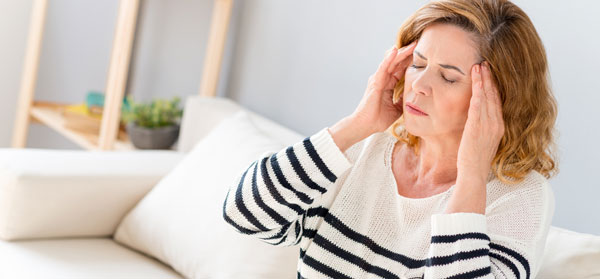Whether it’s caused by getting up too quickly, not eating enough or as a result of exertion, feeling dizzy isn’t very pleasant. While the underlying causes should be investigated if it happens frequently, there are simple ‘cures’ that will help the initial feelings pass.
What is dizziness?
Dizziness is essentially a common term for either feeling light-headed – where you get the sense that you may pass out or faint, or vertigo – where it feels as though your surroundings are swaying. It is important to understand the difference, as it will help your GP to diagnose any underlying conditions.
What causes dizziness?
While dizziness can be a symptom of several different conditions, the five main reasons you feel light-headed or experience vertigo are:
Anxiety – when it’s difficult to breathe because you’re feeling anxious, the lack of oxygen to the brain can cause feelings of dizziness.
Ear infections – your ears are responsible for helping you to keep your balance and infections, which can result in fluid in the ear canal, can make it harder to do so.
Lack of sugar – this can lead to low blood pressure, which in turn results in dizziness and is often a result of following a specific diet or simply not eating regularly.
Dehydration – the importance of drinking water can’t be underestimated, especially when the weather is particularly warm. Lack of hydration can lead to dizziness.
Medicines – some medicines can cause lower blood sugar due to their interaction and this may cause you to feel dizzy.
What can you do to treat the symptoms?
If you feel dizzy, it’s vital that you take action to stop yourself from falling over, fainting or bumping into something and hurting yourself. These five simple tips will help you to feel steadier on your feet.
- Drink some water – especially if your dizziness is caused by dehydration.
- Eat something – a cracker or piece of fruit is usually enough for the dizziness to pass
- Breathe deeply – sit or lie down and take a deep breath, holding it for two or three seconds, then exhale from your stomach. Repeat 10 times and then rest for five minutes until your breathing returns to normal.
- Ginger – chew on a small piece of ginger or drink a glass of ginger ale. This will stimulate the blood flow to the brain and combat the feelings of dizziness.
- Focus – by concentrating on an object or picture, your mind is distracted from the dizziness and the equilibrium in your body will return.
Do you have any tips for dealing with dizziness?
Related articles:
Six tips to manage medication
Blood pressure for dummies

